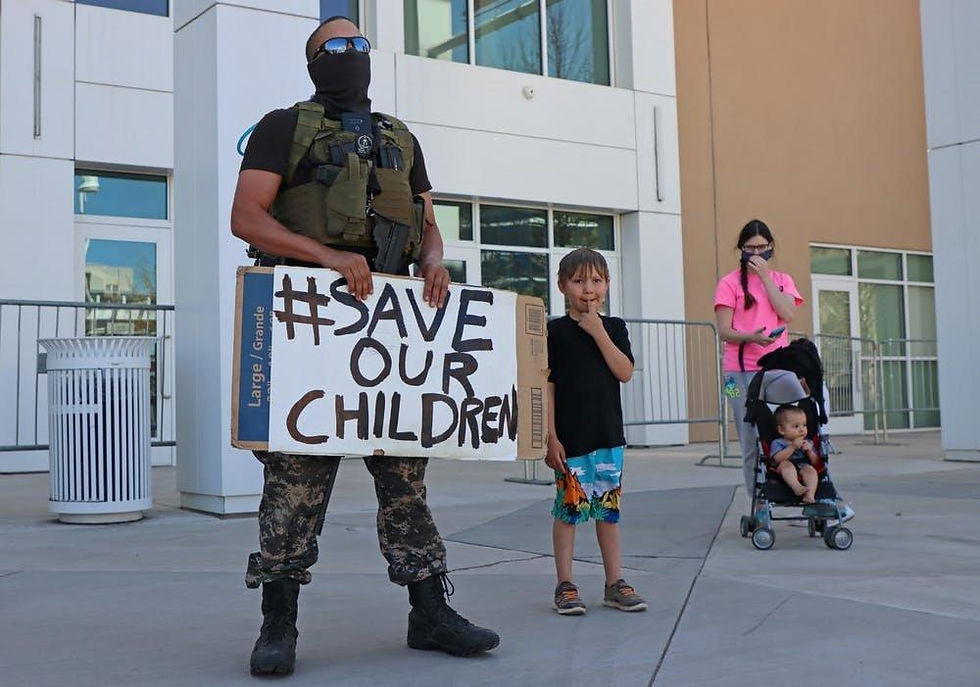Racism, bigotry and prejudice in America
- Stephan Helgesen
- Jun 4, 2018
- 3 min read
One of the most difficult tasks we modern folks face is how to understand the complex issues facing us. There are many ways to break down problems. Some of us step outside them and try to look inward with an objective eye. Others try to reverse-engineer them by tracing them back to their source. Still a third group will attempt to de-personalize or de-emotionalize them and only look at the facts.

While we should reward any attempt at understanding, we cannot afford to ignore the fact that we humans look at things differently, and too often that keeps us from understanding how the other person reached his conclusions. I am of the opinion that we need to use an 'all of the above' approach to problem-solving that includes both the emotional and fact-based ones. It's easy to see how both of these approaches differ when we look at our political interactions with one another. Let's take a hotly debated subject like race relations and racism in America. Before we do that (and this goes for every serious debate) we must agree on terminology.
Racism is extreme prejudice or hatred against people of other races that is rooted in the belief that people have definite characteristics or abilities that are specific to their race. A racist believes that his/her own race is superior to others. Racism can be passive or active. Beliefs are passive, but racist actions and pronouncements help to identify the racists among us.
Bigotry, on the other hand, is intolerance toward those who have opinions different from our own. It's easy to recognize a bigot by their comments and their choice of words. Their debate or commentary performance style is another dead giveaway. They cut off their opponents and demean and insult them, personally, as well as belittling their opinions. Unfortunately, there are way too many bigots operating from positions of authority and in our media, today.
Prejudice is holding preconceived notions or opinions about a variety of things that are not based on reason or actual experience. I would guess that we are all a bit prejudiced, but prejudice can be cured through actual experience and learning from those experiences. Unlike with true racists there is hope for prejudiced people.
Finally, there is discrimination. Discrimination is the act of unjustly treating people on the basis of age, race, sex or sexual orientation, ethnic origin, etc. There are a number of legal remedies for discrimination, but there is no foolproof way to eliminate it from human beings' thoughts. The debate on racism, bigotry and prejudice in America should be based on these terms, but if we allow political zealots to misuse them by falsely accusing those who harbor ill feelings against certain ethnic or other groups of being racists we will poison the well of the debate.
Take the Irish, for example. In the mid-1800s they fled famine and poverty in Ireland for the U.S. At the time, many Americans thought that England was not sending 'its best people' to our shores. Those opposed to the Irish were both bigoted and prejudiced (not racist because the Irish were not a race). Our relationship with the 'orientals' - largely Chinese immigrants who were the first Asians to immigrate to the USA - is a story of out and out racism (the Chinese are part of the Mongoloid race) and was evidenced by the Chinese Exclusion Act of 1882 which prohibited Chinese labor migration. On and on it went. The passage of the Thirteenth Amendment in 1865 abolished slavery but did not abolish racism nor did it magically cleanse the souls of racists.
Our current illegal immigration problem has once again muddied the debate on the difference between racism, bigotry and prejudice. Those against illegal immigration from the southern border (which come primarily from Hispanic immigrants from Mexico and Latinos from Central America) are labeled as racists, the idea being that all Hispanics or Latinos belong to a different race from the Caucasoid. This, of course, is false because Hispanics and Latinos are ethnic groups, and any resentment against them must be based on bigotry not racism. I realize that many people will say, "It doesn't matter what you call animus," but it does. Just as it matters when people disagree on a whole host of other issues.
We must keep the lines of demarcation between racism, bigotry and prejudice intact. If we don't, sooner or later anyone disagreeing with the application of our immigration law will be known as racists.
Stephan Helgesen is a retired career U.S. diplomat and now political analyst and author. He has written nine books and over 850 articles on politics, economics and social trends. He can be reached at: stephan@stephanhelgesen.com







Comments